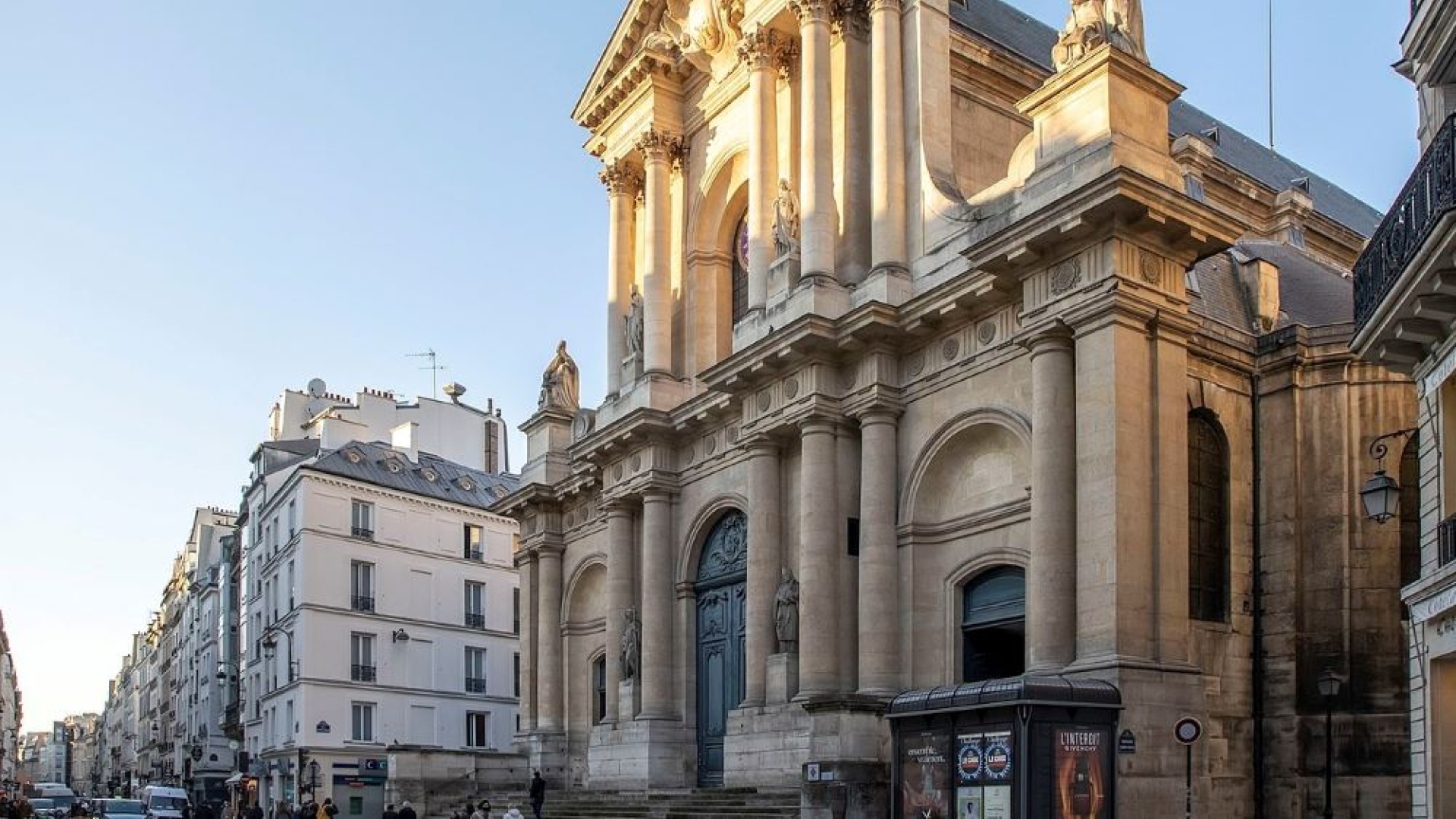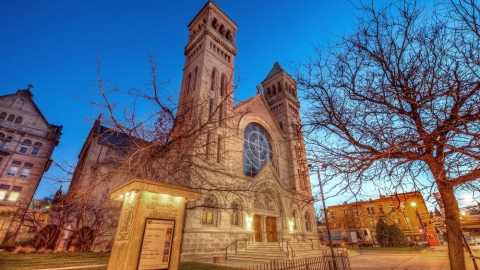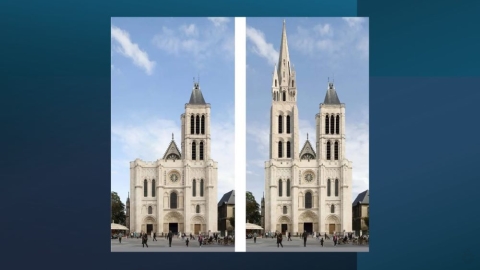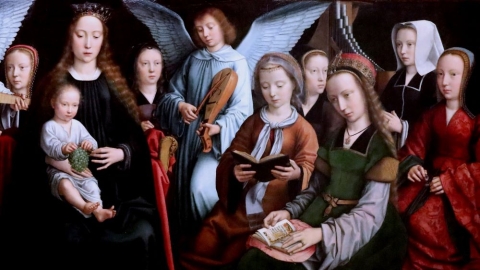Traditionis Custodes, Desiderio Desideravi, and Their Positions on the Mass (2)

Saint-Roch Church in Paris
Traditionis Custodes and Desiderio Desideravi have plunged into disarray many priests and faithful attached to the Tridentine Mass.
Bi-Ritualism at an Impasse
For his part, Fr. Eric Iborra, vicar of Saint-Roch Church in Paris, considers the coexistence of the two masses as a solution to the crisis, and regrets that Traditionis Custodes rejects the “extraordinary form” in favor of the “ordinary form.”
Questioned by the German Catholic newspaper Tagespost on July 19, Fr. Iborra believes that the celebration of the two “forms” reduces tensions: “The faithful learn to know and appreciate each other within a same parish, because there are many common activities apart from the mass. Over time, many of the faithful came to attend Mass in the other form as well.”
Bi-ritual priests would be factors of unity, according to him. Since Traditionis custodes, the vicar of Saint-Roch has shown himself to be inventive in the celebration of the sacraments, according to one or the other rite. “We want our new Archbishop Laurent Ulrich to appoint a priest to administer Confirmation and plan for him to do it in the new form in Latin, within a Mass in the extraordinary form.”
“Our confirmands agree with this solution. This also shows that our 'Tradis' are not hardliners,” he affirms, without mentioning the confusion that such a mixture - in line with the “mutual enrichment” of the two rites, wanted by Summorum Pontificum (July 7, 2007) – will not fail to provoke. Because the adage lex orandi lex credendi which manifests the close link that exists between the liturgy and the faith cannot be cast aside.
Fr. Iborra expresses a fear that, “many of the faithful will migrate to the Society of Saint Pius X,” because “those who try to live the unity of the two forms will sooner or later have to choose their ‘camp.’ Those who seek a rapprochement of the two forms and their mutual enrichment will therefore be punished.”
Is it really a punishment imposed on the supporters of mutual enrichment or the logical observation that bi-ritualism cannot ignore the link between liturgy and faith, the lex orandi and the lex credendi?
Obedience Put to the Test
On the Famille chrétienne site on July 17, which has again published an interview with Don Thomas Diradourian, rector of the shrine of Neviges in Cologne (Germany) and priest of the Saint Martin community where he teaches liturgy at the Evron formation house, originally published on October 15, 2021, we learn that “every Catholic has the duty to adhere to the Mass of Paul VI.” On what is this injunction based?
Don Thomas responds in a negative interrogative way: “Is not refusing filial and docile obedience to the liturgical discipline of the Church not contesting her quality as mother and educator?” And he adds a personal conviction: “I am convinced that the 2022 Missal, which is imperfect like any human work, contains within it not only the surest formulas of the faith of the Church, but also all the treasures of the tradition of the Roman liturgy.”
On the Renaissance Catholique site on July 20, Jean-Pierre Maugendre replied to this personal conviction with an objective observation: “The 2022 Missal, an updated version of the 1969, not only contains “sure formulas of the faith of the 'Church,” but “the most sure.”
“How then can we explain the observation of Guillaume Cuchet in his book Does Catholicism still have a future in France? (Seuil, 2021): “The milieus that have most frankly and most enthusiastically played the game of openness are also, paradoxically, those that have experienced the lowest rates of conservation and transmission of the faith.”
“Who will believe, here again, in a simple concomitance, when the statement in the Gospel reminds us: “Even so every good tree bringeth forth good fruit, and the evil tree bringeth forth evil fruit… Every tree that bringeth not forth good fruit, shall be cut down, and shall be cast into the fire. Wherefore by their fruits you shall know them.’ (Mt.7:17-20)” – In other words, contra factum non fit argumentum, against a fact there is no argument that holds.
(Sources : Tagespost/cath.ch/Famille chrétienne/Renaissance catholique/DICI n°423 – FSSPX.Actualités)
Illustration : Arthur Weidmann, CC BY-SA 4.0, via Wikimedia Commons





